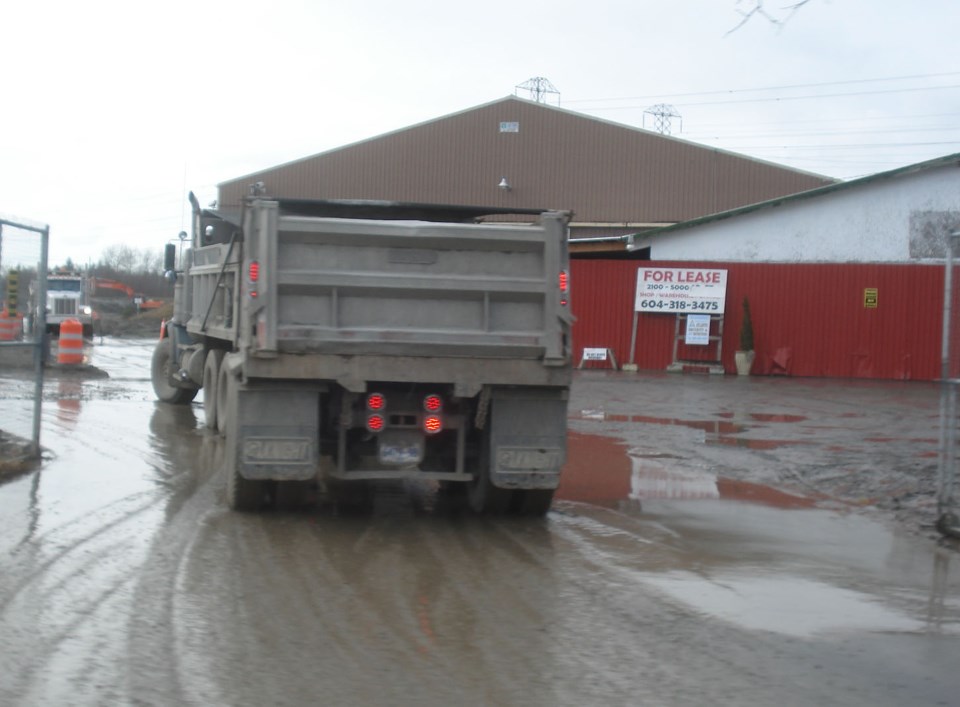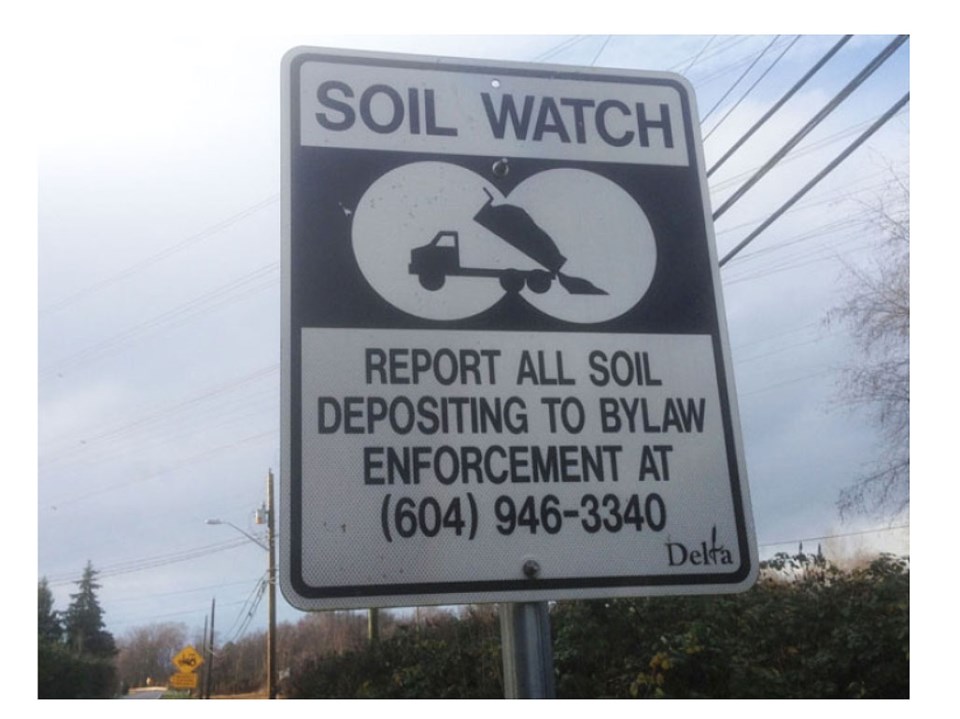It looks like Metro Vancouver is playing catch up with Delta when it comes to not allowing farmland to be used as cheap dump sites.
A recent letter to council by region chair Greg Moore provided an update on Metro’s Agricultural Land Soil Investigation, which looked at looked at land use outcomes of approved Agricultural Land Commission applications for the placement of fill on Agricultural Land Reserve properties.
“Fill is defined as soil excavated from construction sites and is a challenging problem when inappropriately used on agricultural land,” he wrote.
Moore noted the recommendations that emerged from the investigation included asking for clarity on what is acceptable use of fill in the ALR, creating an ALC bylaw, improved monitoring and enforcement as well as better consistency in municipal bylaws.
Delta expressed support for the recommendations but also provided background on the city’s issues with soil deposit on agricultural lands and how Delta over the last few years has dealt with them.
Three years ago, the city enacted new regulations for deposit permits, placing the onus on property owners to maintain a log of trucks coming and going. A bylaw officer maintains a log when watching the property from a distance, and then goes to the site to ensure those license plates are on the log the property owner has maintained.
The fine for not having a dump truck registered on the log is $500 per truck.

The regulation was the latest in a series of moves over the past few years.
In fall 2014, Delta council approved tougher legislation to regulate soil removal and deposit activities on farmland. The move was made in response to continued concerns about fill, including asphalt and concrete, being dumped on good agricultural land.
The legislation is supported through monitoring, by land and air, by Delta staff as well as a Soil Watch program in which area farmers act as Delta's eyes and ears.
That was the year Delta was finally able to halt dumping activity taking place at Princess Farms on 104th Street in East Delta, a contentious property that is now the subject of legal action launched by the municipality.
Three years earlier, Delta first took tougher measures against the dumping of fill or contaminated soil on farmland with a bylaw requiring a permit before material can be trucked in.
A staff report at the time noted, "The cumulative effect of these fill operations is to gradually erode the agricultural land base as a prime topsoil is covered over with less fertile subsoil (often mixed with poor quality material such as construction waste)."
In an interview a couple of years ago, bylaws manager Hugh Davies said, “"We get stuff from all over the place, including the North Shore. They are just looking for a place to drop the material and some of it is good farm material but some of it is not, so we want to keep track," Davies said. "We're soil cops, that's what we are."



